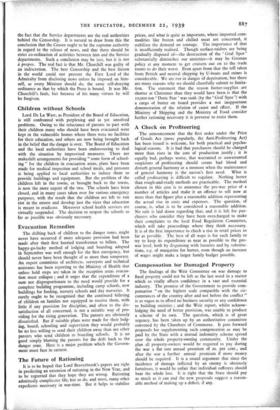The Future of Rationing
It is to be hoped that Lord Beaverbrook's papers are right in predicting an extension of rationing in the New Year, and to be regretted that they hope they are wrong. Rationing admittedly complicates life, but so do, and must, many other expedients necessary in war-time. But it helps to stabilise prices, and what is quite as important, where imported com- modities like frozen and chilled meat are concerned, it stabilises the demand on tonnage. The importance of that is insufficiently realised. Though surface-raiders are being gradually disposed of—the destruction of the ' Graf Spec' substantially diminishes our anxieties—it may be German policy at any moment to get cruisers out on to the trade routes to do their worst. Even apart from that the toll taken from British and neutral shipping by U-boats and mines is considerable. We are rot in danger of deprivation, but there are many reasons why we should cheerfully submit to limita- tion. The statement that the reason butter-supplies are shorter at Christmas than they would have been is that the io,000-ton ' Doric Star' was sunk (by the Graf Spee ') with a cargo of butter on board provides a not inopportune demonstration of the relation of cause and effect. If the Ministry of Shipping and the Ministry of Food consider further rationing necessary it is perverse to resist them.




































 Previous page
Previous page